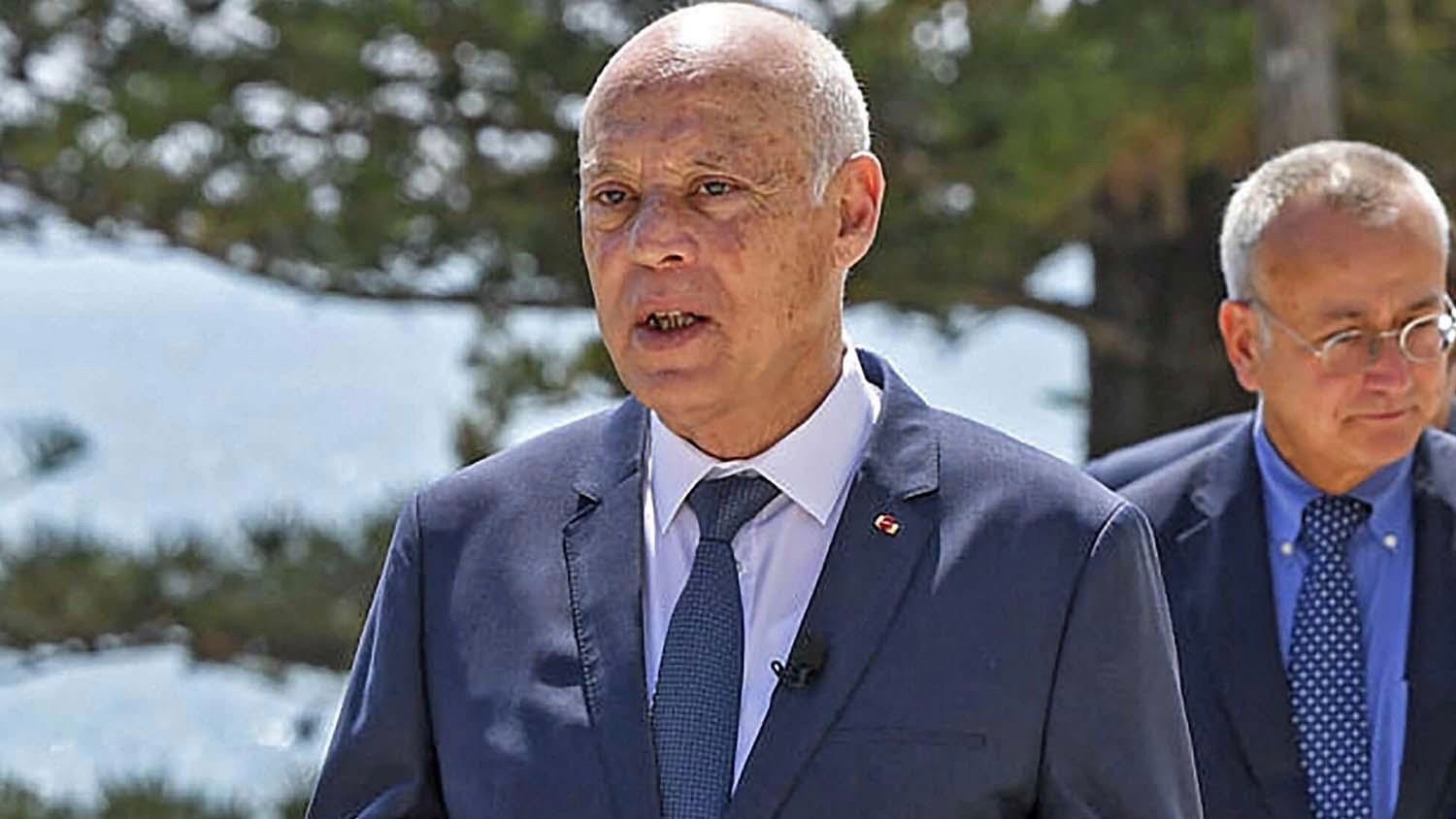More than 90 prominent Tunisians signed a statement strongly condemning plans by president Kais Saied to amend the country’s constitution. They reaffirmed their commitment to the 2014 constitution in the signed statement published by Tunisian Arabic language radio station Mosaique FM on Sunday, September 12, Middle East Eye reported. The signatories include people from all walks of life, including journalists, doctors, lawyers and students. Among them are Ennahda party politician Yamina Zoghlami and Osama Khelifi, chairman of the Heart of Tunisia party. The statement says, “We express our adherence to the 2014 constitution, which was the culmination of the course of the Tunisian revolution and the embodiment of the aspirations of Tunisian women and men for freedom, dignity, democracy, citizenship and the rule of law, and we reject every attempt to circumvent it and deviate from it and overthrow its contents.”
President Saied had last week announced his intention to amend the constitution, adding that he would only do so through constitutional means. He tried to justify his plans by saying that Tunisians had “rejected the constitution” and that it was not an “eternal” text. He also announced that he will appoint a new government soon.
In response to the president’s announcement, Ennahda, the biggest political party in the Tunisian parliament, expressed in a statement “its categorical rejection of the attempts of some parties that are hostile to the democratic process… to push for choices that violate the rules of the constitution.” It added that it would oppose “an intended suspension of the application of the constitution and a change to the political system, possibly through a referendum.”
The presidential advisor told Reuters and other news outlets that the president also plans to assign a committee to write a new constitution, which will then be put up for a national referendum.
The signatories of the statement on Sunday went on to say that “the statements of the advisor to the President of the Republic represents a confirmation of the path against the Constitution that the President of the Republic initiated on July 25 through the exceptional measures he took outside of what is required by Article 80 of the Constitution.” This was in reference to the president sacking the prime minister along with several cabinet members, suspending the parliament and immunity of Tunisian MPs, and assuming all executive power in the country.
The statement asks for pooling “all efforts against the coup d’état, promptly return to the democratic process and end of all exceptional measures, including the freezing of the Assembly of People’s Representatives.” It also welcomed the growing widespread anti-coup stance of many political and civil society figures in the country, as well as the “strong reactions” of many parties to the president’s statements. In yet another sign of growing opposition to the president, the most powerful labor union in Tunisia, the UGTT, also indicated its opposition to suspending or amending the constitution and instead called for fresh parliamentary elections in the country.
President Saied in July had justified taking such abrupt and extreme measures by citing the country’s rapidly declining economy and healthcare system, and the inability to deal with the COVID-19 outbreak. At the time, he had said that his measures, which many deem as unconstitutional, will only last for 30 days. However, almost two months later, there is no clear information about when these measures will be withdrawn. Since then, the president has faced growing international pressure to suspend the measures and bring back a democratic form of government, after decades of authoritarian rule which only ended with the Tunisian revolution in 2011.





